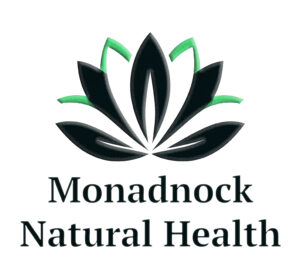She politely raised her hand, looked at me intently and asked, “What about genetics?” Could that not be the cause of ailments like high blood pressure, cancer or hormone imbalance? And although I mounted what I thought was quite a compelling argument to the contrary, she held firmly to her belief.
As I packed up my lecture equipment, I had a lingering thought: what is the possibility that she is right? After all, haven’t I had dozens and dozens of clients come to the Center with a prior diagnosis of genetically caused symptom-otology, like high blood pressure?
The truth is that genetics do play a role in which symptoms a particular individual may experience. While it is, in fact, possible that genetics could seal an individual’s health sentence, we must consider a number of other possibilities – if we are to have any say in our likelihood of a long and healthy life.
Each of us has DNA from our parents passed onto us that determines our genetic potential. The key word here is potential, meaning the outcome is yet to be determined. You may have the genetic potential for being a racehorse, but if you live a lifestyle of overeating and no exercise you are unlikely to rise much beyond mule. And although you may not be sure quite which one it is, the same rules would apply to your overall physical fate. Genes are a lot like a hammered nail: it may be in there to stay, but it matters a lot what you hang on it.
The fact is that today’s modern world, despite our advancements, arrives with a plethora of modern day stressors, too: electromagnetic, vibrational, and chemical toxicities to name but a few. And let us not forget the emotional stress of keeping up with the culture.
So the first thing we do here is test our patients for these types of stressors; I know, without any doubt, the negative effect they have. It is amazing to uncover, in this office, how many people have chemical and metal toxicities negatively affecting their health – and who, until they showed up here for screening, had no idea – when, lo and behold, from a previous diagnosis blamed on firm heredity, their genetic disorders magically disappear.
So, while they may actually have had a genetic predisposition to, say, high blood pressure, it only showed up when they were overstressed by any of the aforementioned offenders. Either way, whether you have “bad genes” or not, doesn’t it make sense to first check for and handle the outside stressors? The danger of a diagnosis of a genetic disorder is that patients tend to give up and, putting last resorts first, submitting to a lifetime of medication.
And for those who still believe in their fixed genetic fates, a small test. Pretend for merely one month that your choices, of life and health, may actually have an unpredetermining effect upon your inheritances and, I promise, you will soon no longer have to pretend. Make changes to improve your health as if what you do does matter, and it really will. Your genes may be the first voice your genetic future ever hears, but it is by no means the last.
The last voice is the verdict. And whose is better? By coming here, I bet that the better voice is made clearer to you, your actions in harmony with nature as nature was fingerprinted within you. True, nature to be commanded, must first obeyed. So, for you, let’s find out what is, in order to reach what truly can be. Genes are not simply what makes you; they’re what you make them.

